Books I Enjoyed in 2024

At the start of each year, I love reflecting on the books that have shaped my thoughts and experiences over the past twelve months. Last year, I shared my favorite reads in Books I Enjoyed in 2023, where I delved into topics like personal growth, business strategies, and storytelling. This year, my reading has been just as diverse, spanning everything from career development to mythology, psychology, and even military history.
If there’s one lesson my reading habits reaffirm, it’s that variety truly is the spice of life. I’ve explored books that helped me professionally, inspired personal introspection, and even sparked creative connections in unexpected places. Whether it was learning how to navigate the complexities of a Staff Engineer role or understanding the whimsical pettiness of Greek Gods, each book offered something unique and valuable.
Interestingly, my reading habits have quietly influenced my family, especially my two daughters. Sitting in the living room with a physical book in hand, I’ve noticed them start to take a greater interest in reading themselves. I’ve always told them they can buy any toys they want with their own money, but when it comes to books, I’m happy to foot the bill. This small encouragement has made reading feel like a shared adventure in our household, one that I hope will inspire a lifelong love of learning in them.
As I recount the books I’ve read this year, I’ll share not just the ideas they’ve sparked but also the way they’ve shaped my perspective, both personally and professionally.
Staff Engineering: Leadership Beyond the Management Track by Will Larson and Tanya Reilly
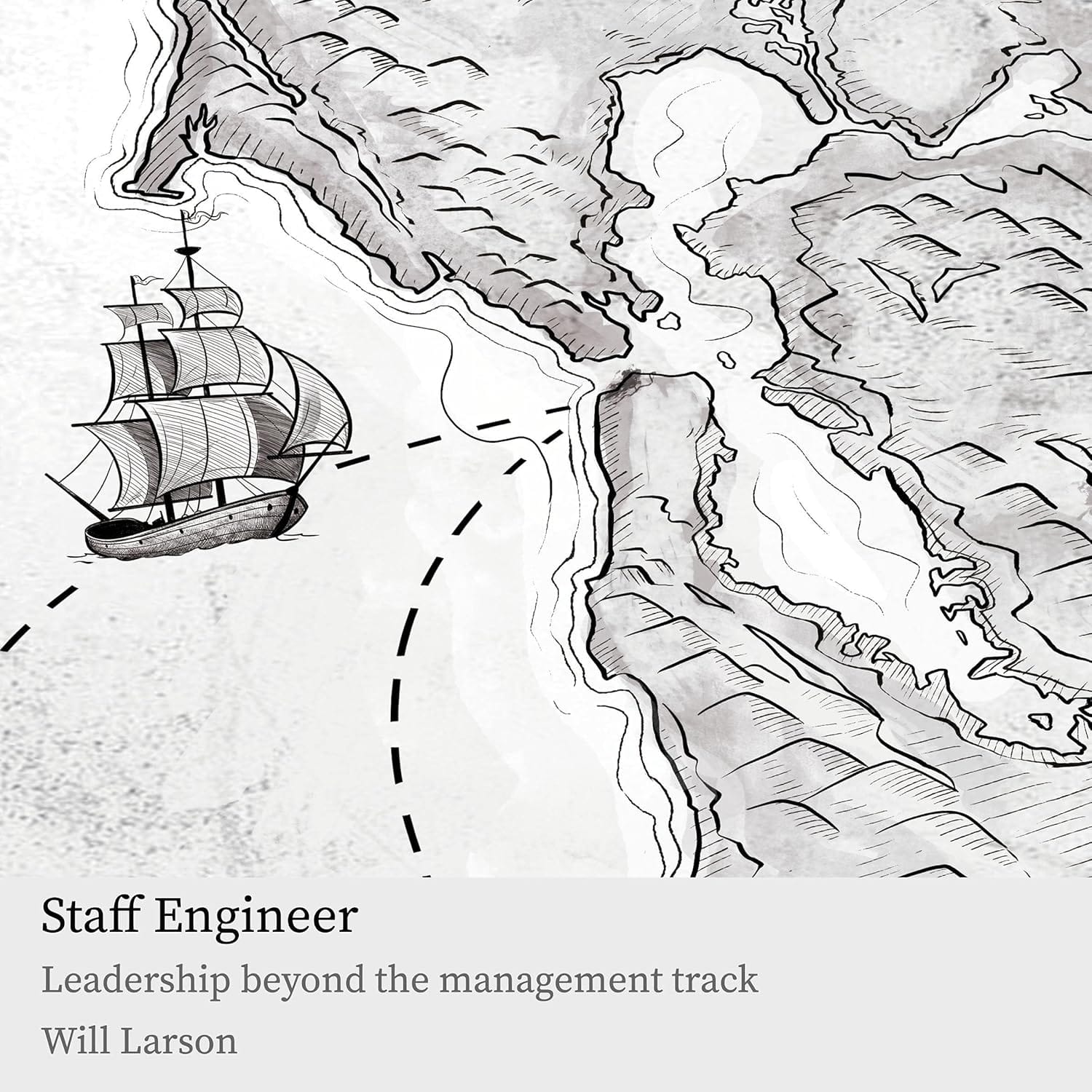
Earlier this year, while exploring job opportunities, I stumbled across a Staff Engineer role at GitHub. At the time, I had no idea what a Staff Engineer was. Was it a technical guru? A strategic leader? Or perhaps something entirely different? To satisfy my curiosity—and prepare myself when I decided to apply—I picked this up.
What I discovered was fascinating: the Staff Engineer role isn’t a singular concept but rather a spectrum. The book outlines different specialties within this track, such as Technical Lead, Technical Architect, and Solver of Really Hard Problems. This diversity of roles allows engineers to advance in their careers without needing to transition into traditional management, which often feels like the only option for career growth.
One of the book’s most valuable insights was its practical advice on how to manage yourself effectively in such a role. It emphasizes balancing technical expertise with communication and leadership skills to maximize both personal and organizational impact. The authors also delve into the idea of “skill trees” for career progression, which resonated with me. Much like leveling up in a video game, you can choose to focus on areas like mentorship, system design, or operational excellence, depending on your interests and the needs of your team.
This book was a revelation, not just for understanding the Staff Engineer role but also for broader career planning. It helped me realize that technical leadership can be as fulfilling and impactful as managing people—if not more so.
Oversubscribed by Daniel Priestley
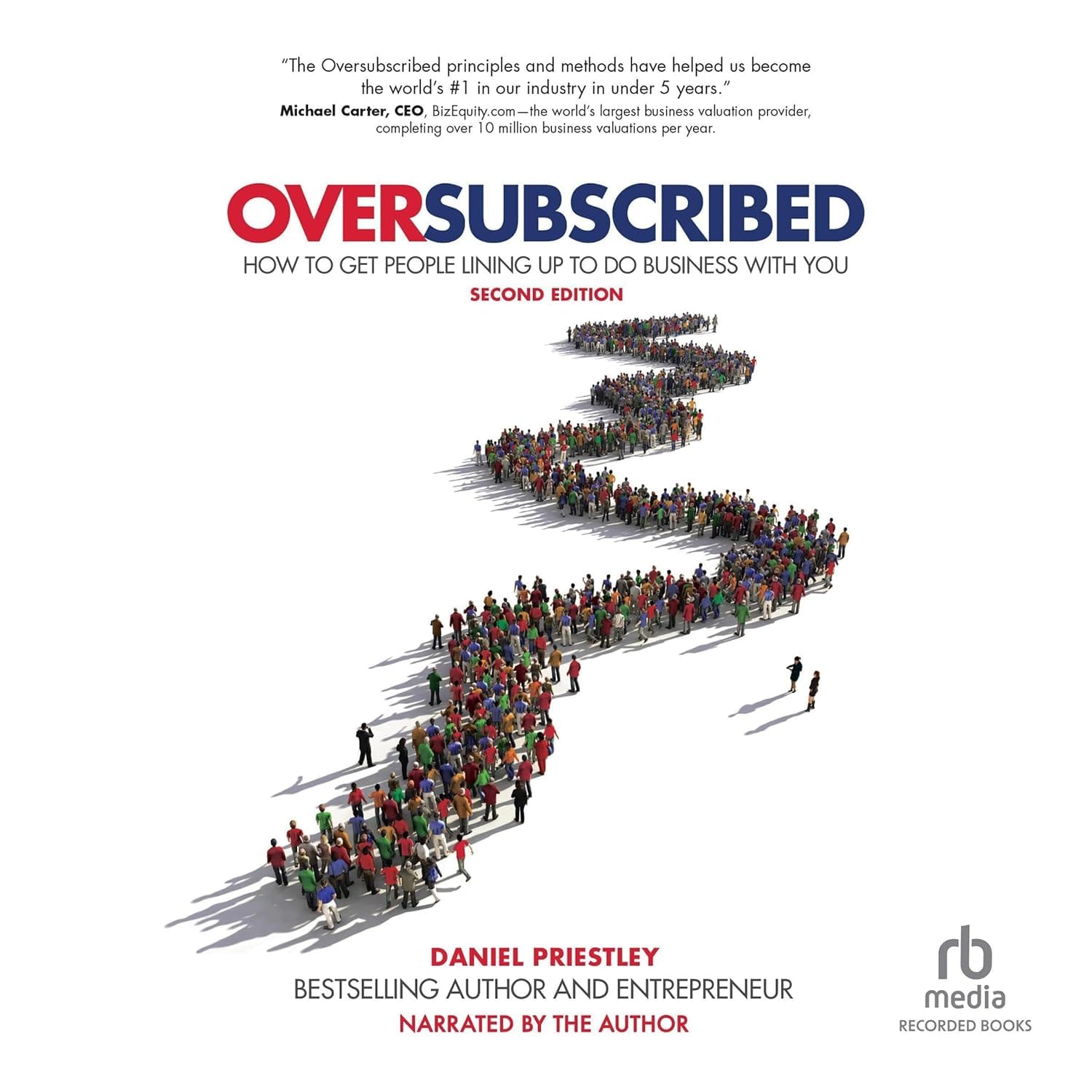
When it comes to business and marketing, I’ve always believed that there’s a lot to learn from those who’ve mastered the art. Oversubscribed by Daniel Priestley is one of those books that offers not just theories but also actionable insights into creating demand for your product or service.
The central idea of the book is simple yet profound: to succeed, you need to bring genuine value to your audience and, in doing so, create a buzz that leaves them wanting more. He provides a range of strategies to achieve this, all supported by real-world examples that bring his points to life. From exclusive offers to well-timed launches, the methods he describes are designed to position your business as something people can’t wait to be part of.
One of my biggest takeaways was the importance of building relationships with your customers by consistently delivering value. Whether it’s through thoughtful engagement, high-quality products, or exceptional service, the focus should always be on exceeding expectations. For me, this translated directly into how I approach my work—ensuring that customers feel both valued and excited about what we offer.
The book also made me reflect on how to apply these principles beyond business. Creating meaningful connections and delivering value is a philosophy that works in all areas of life, whether it’s in professional relationships or personal ones.
Overall, Oversubscribed wasn’t just about business strategies—it was a reminder of the importance of understanding and serving the people around you.
Saving Social Care by Neil Eastwood
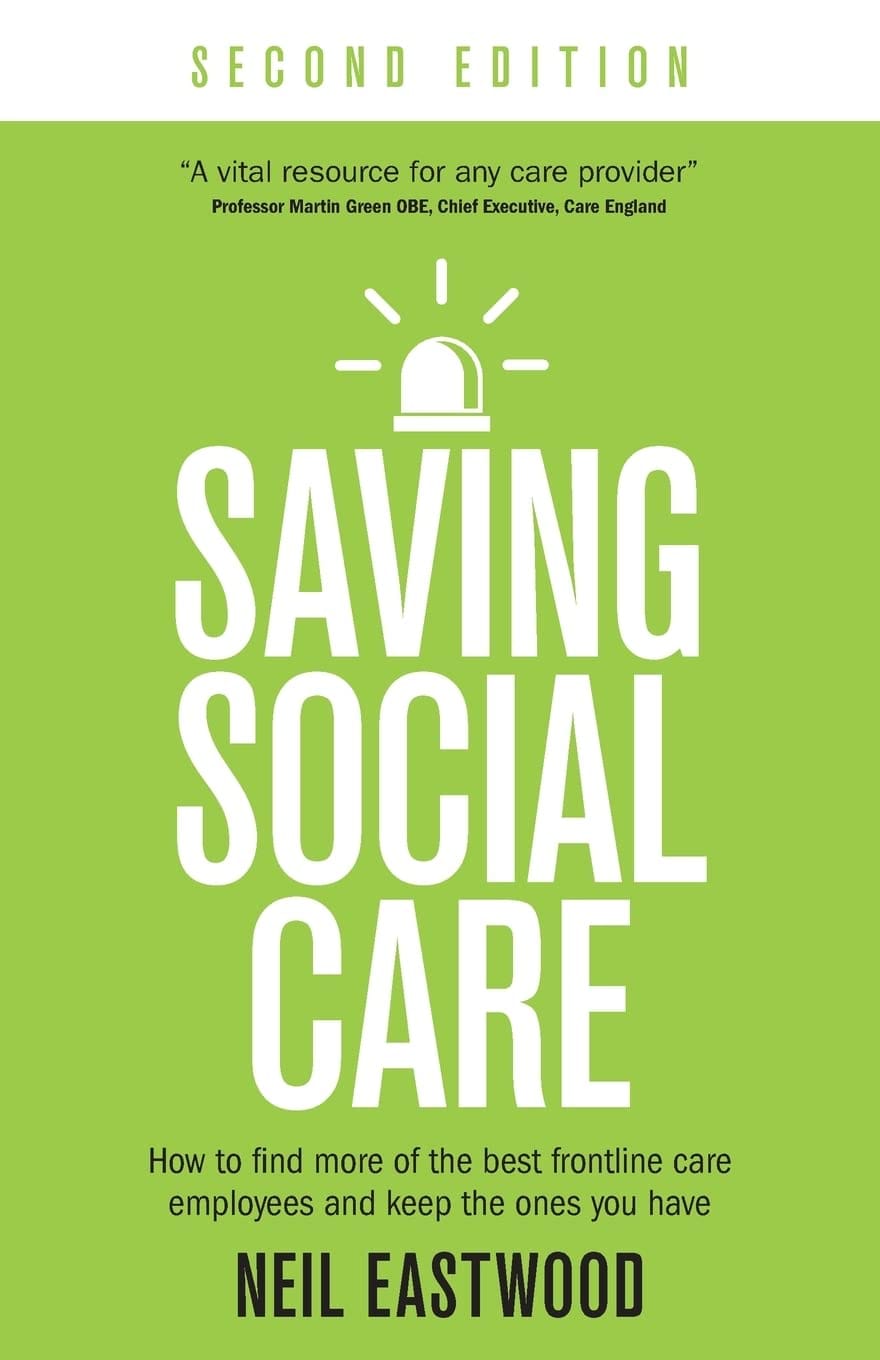
This year marked a significant milestone for me as I started working full-time at Care Friends. Naturally, I wanted to understand the company's mission and the industry it serves, so I picked up Saving Social Care by Neil Eastwood, the company's founder.
The book offers a candid look into the current challenges facing the social care sector. From workforce shortages to the growing demands of an aging population, it paints a vivid picture of why the industry is under immense pressure. What I appreciated most was how Neil didn’t just highlight the problems but also proposed actionable solutions.
One of the standout insights for me was how much untapped potential exists within the social care workforce. Neil emphasizes the importance of recruitment and retention strategies that focus on the human element—identifying the right people, understanding their motivations, and ensuring they feel valued. It’s a refreshing perspective in an industry often constrained by rigid systems and limited resources.
Reading this book before fully immersing myself in my role was invaluable. It gave me a deeper appreciation for the work we do at Care Friends and the impact we can have on both the industry and the individuals we support. It also reinforced the importance of technology as a tool to address some of these systemic challenges.
If you’re curious about the social care sector or simply want to understand how businesses can navigate complex challenges, Saving Social Care is a compelling read. For me, it was not just educational but also deeply inspiring.
Isn’t It Obvious by Eliyahu M. Goldratt
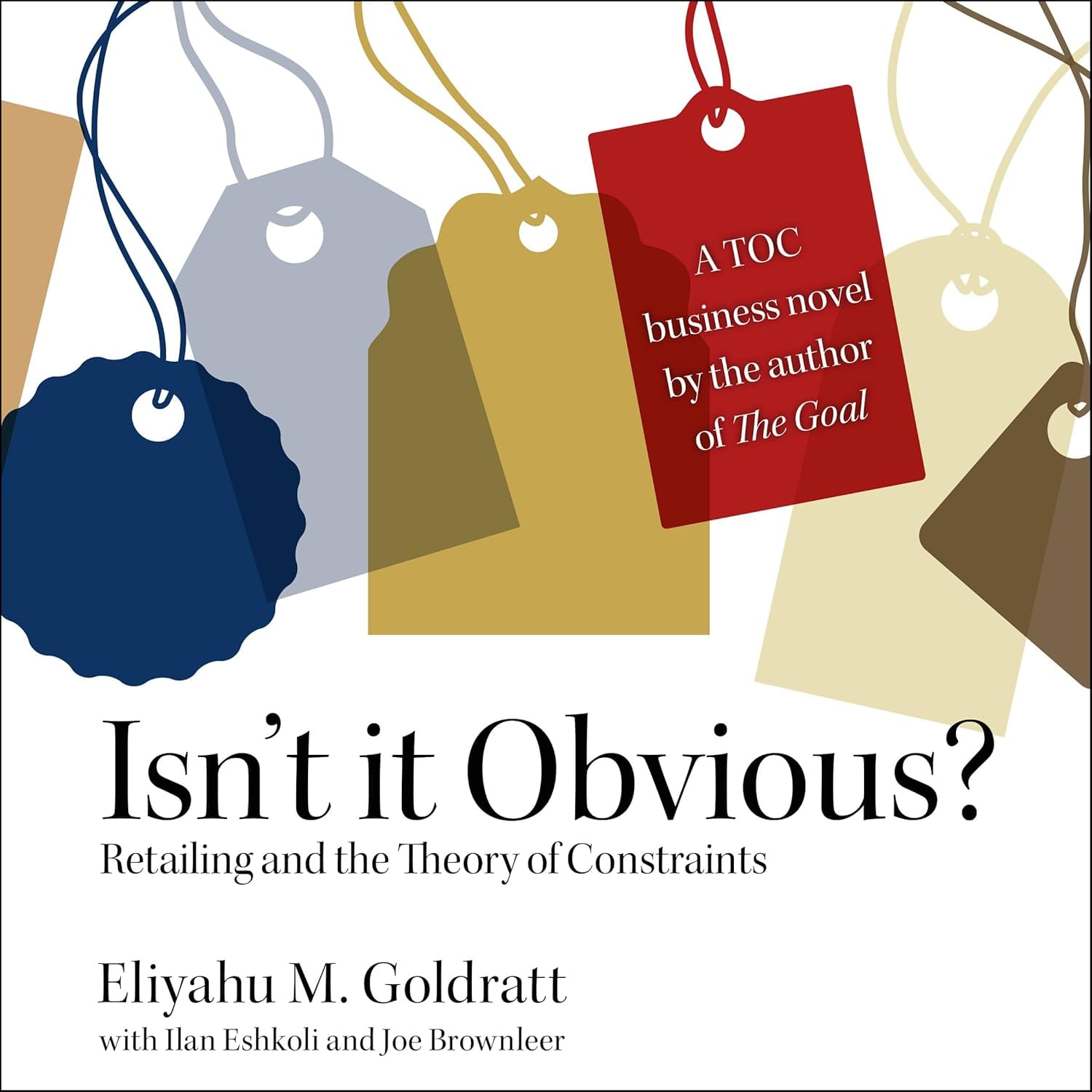
I’ve always been drawn to books that use storytelling to illustrate big ideas, and Isn’t It Obvious by Eliyahu M. Goldratt was no exception. Much like his classic The Goal, this book combines a fictional narrative with profound insights into problem-solving and business management.
The story revolves around a retail business facing significant challenges. From inventory management issues to communication breakdowns, the characters work through a series of problems that will feel familiar to anyone navigating complex systems. What made this book stand out for me was how it captured the emotional and personal struggles that come with trying to enact meaningful change—both at work and at home.
A recurring theme in the book is the need to challenge assumptions and habits that no longer serve us. Change isn’t easy, especially when it requires convincing others to adopt new ways of thinking. Yet, as the characters in the story demonstrate, persistence and clear communication can lead to transformative outcomes.
I found myself reflecting on how this applies to my own work. Whether it’s improving processes or introducing new ideas, the lessons from this book remind me that progress often starts with asking, “Isn’t it obvious?” and then digging deeper to uncover the real solutions.
Goldratt’s storytelling once again delivered not just practical lessons but also a reminder of the importance of empathy, patience, and a willingness to embrace change. This book was as much about personal growth as it was about professional improvement, making it an incredibly rewarding read.
Mythos by Stephen Fry
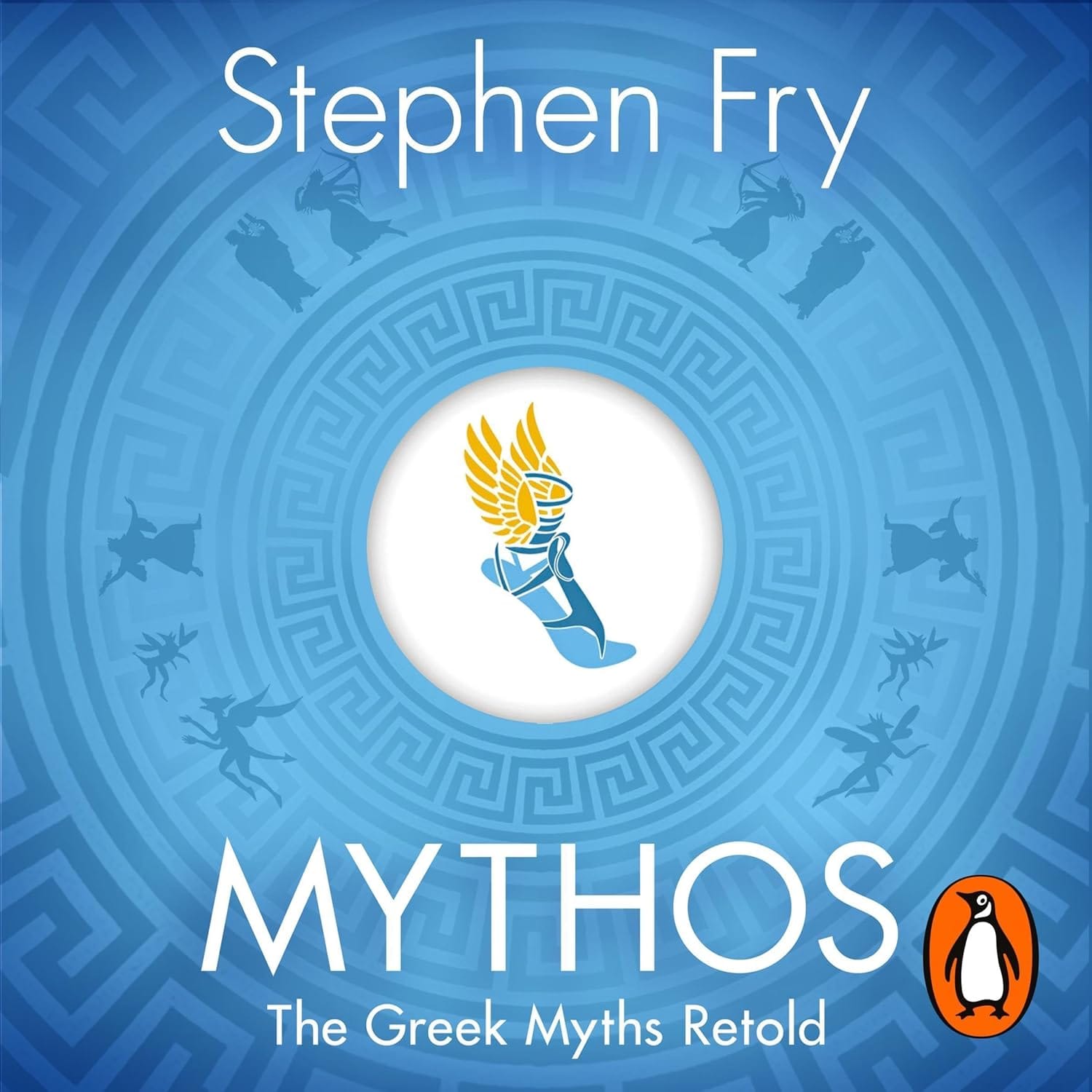
I’ve always been fascinated by mythology, particularly Greek mythology, and Stephen Fry’s Mythos was an absolute delight. The book takes you through the origins of the Greek Gods, the creation of humanity, and the intricate web of stories that shaped ancient beliefs. What I loved most was how Fry brought these tales to life with his trademark wit and charm, making them feel both timeless and refreshingly modern.
The stories themselves were captivating. From the drama and spitefulness of the Gods to the fascinating origins of everyday words, each chapter left me more intrigued than the last. For example, learning about the creation of man and Prometheus’s defiance against Zeus was both awe-inspiring and oddly relatable 😅. It was also fascinating to see how the quirks and flaws of the Gods reflected human nature, often in exaggerated but humorous ways.
One of the things that struck me was how many of these myths have left a lasting legacy on modern language and culture. Words and expressions we use without a second thought often have their roots in these ancient stories, which added an extra layer of richness to the book.
On a personal note, the playful antics of the Gods reminded me of my own tendency to take things literally for a laugh—a small but amusing connection that made the book even more enjoyable. In fact, I enjoyed Mythos so much that I immediately picked up Fry’s follow-up, Heroes, to continue the journey through Greek mythology.
Whether you’re a long-time fan of mythology or just curious about the stories that have shaped so much of Western culture, Mythos is an engaging and insightful read.
The Genetic Book of the Dead by Richard Dawkins
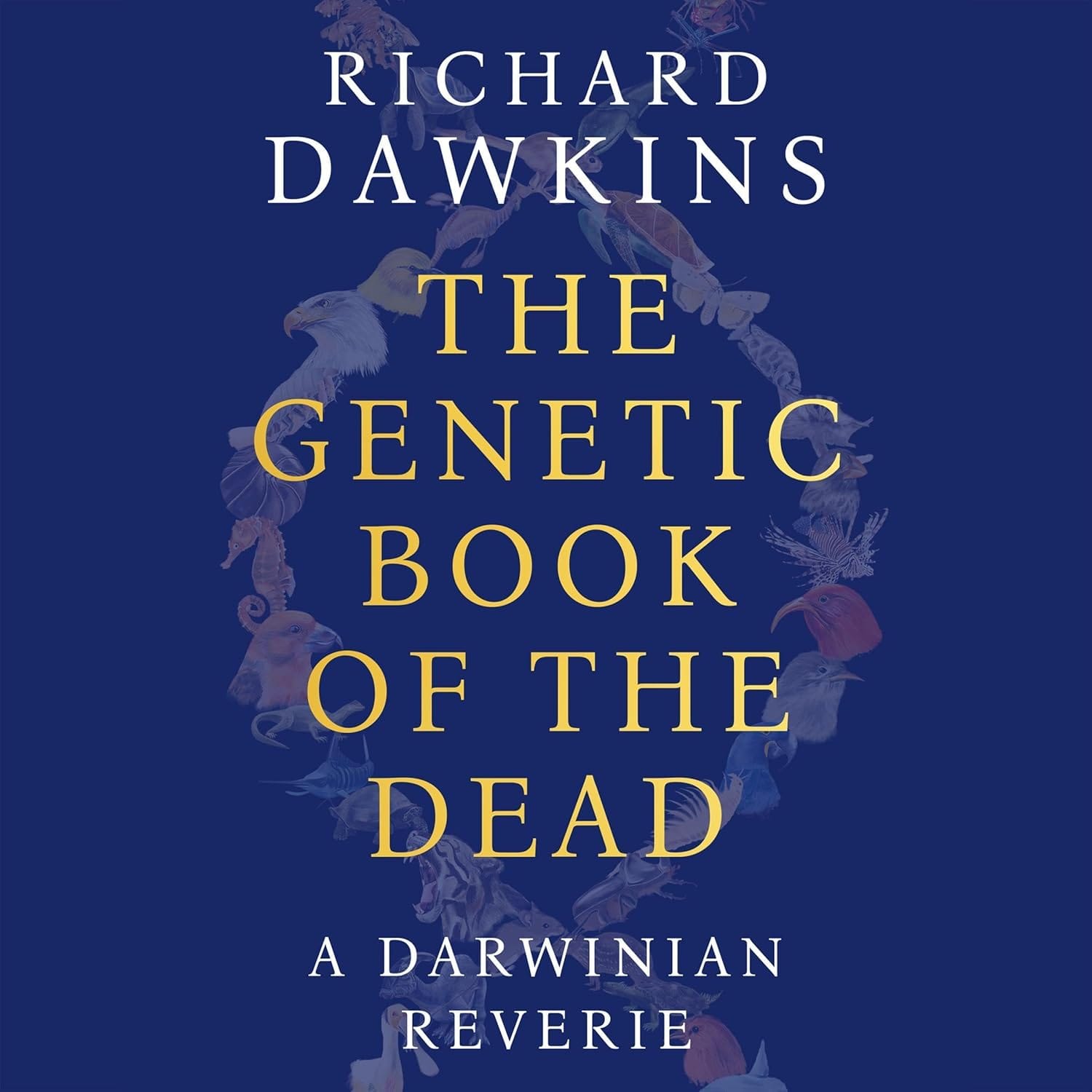
As someone who enjoys diving into Richard Dawkins’ thought-provoking works, The Genetic Book of the Dead was another fascinating addition to my reading list this year. Dawkins has an incredible ability to distill complex concepts into something understandable, and this book was no exception.
One of the key themes of the book is the evolutionary process and how it essentially acts as a trial-and-error mechanism. Dawkins explains how small mutations occur randomly, akin to taking a shot in the dark, and how natural selection then determines which of those mutations will persist. Reading this brought back memories of his earlier work, The Blind Watchmaker, which also explored the beauty of evolution as an iterative process.
What I find most compelling about Dawkins’ work is how it parallels problem-solving in other domains, particularly in technology. Just as evolution tests countless mutations to find those that thrive in a given environment, we often take an iterative approach in software development or business strategies, experimenting with different solutions until we find the one that works. This connection between biology and human systems is something I’ve always found fascinating.
The book also delves into the concept of DNA as a repository of ancestral experiences—essentially a record of what has worked in the past. It’s a humbling reminder of the resilience and adaptability of life, and it made me reflect on how we, too, carry lessons from our experiences forward into our work and personal lives.
Overall, this book wasn’t just a lesson in biology but a source of inspiration for thinking about innovation and adaptation in everyday life. Dawkins continues to challenge and expand my understanding of the world, and this book was no exception.
The Bomber Mafia by Malcolm Gladwell
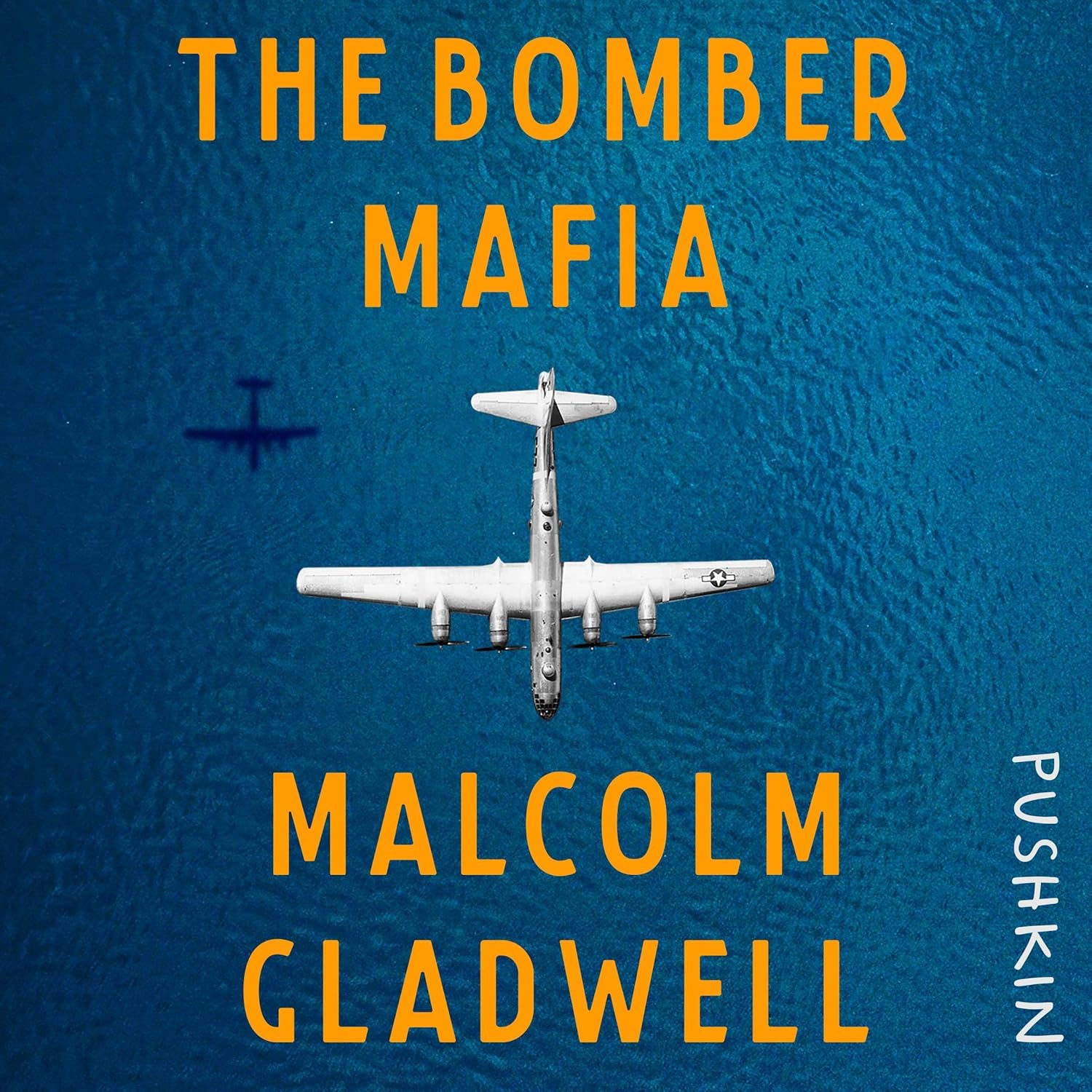
I’m a big fan of Malcolm Gladwell’s storytelling, and The Bomber Mafia was another captivating read from him this year. While it’s easy to think of military history as a dry topic, Gladwell’s ability to weave narrative and insight together brought the story to life in a way that was both engaging and thought-provoking.
The book explores the evolution of bombing strategies during the 20th century, focusing on the contrasting cultures within different branches of the military—primarily the Air Force. What stood out to me was how the story began with the development of precision bombing technology, such as the Norden Bombsight, which promised to make bombing more accurate and humane. Yet, as Gladwell explains, reality often fell short of these idealistic visions, particularly in the chaos of war.
One of the most compelling parts of the book was its examination of how and why the Air Force shifted from precision bombing to “area bombing.” This strategy, which focused on creating widespread chaos and demoralization, starkly contrasted with the early dreams of technological precision. Gladwell doesn’t shy away from the ethical dilemmas this shift presented, leaving readers to grapple with questions about morality, practicality, and the human cost of war.
Beyond the historical insights, the book also prompted me to think about how different organizational cultures—whether in the military or in business—can lead to vastly different approaches to solving problems. It’s a reminder of how much the values and goals of a group shape its decisions, for better or worse.
The Bomber Mafia was more than a history lesson; it was a reflection on innovation, ambition, and the unintended consequences of even the best-laid plans. Gladwell continues to be a trusted guide for exploring complex topics through compelling stories.
The Man Who Mistook His Wife for a Hat by Oliver Sacks
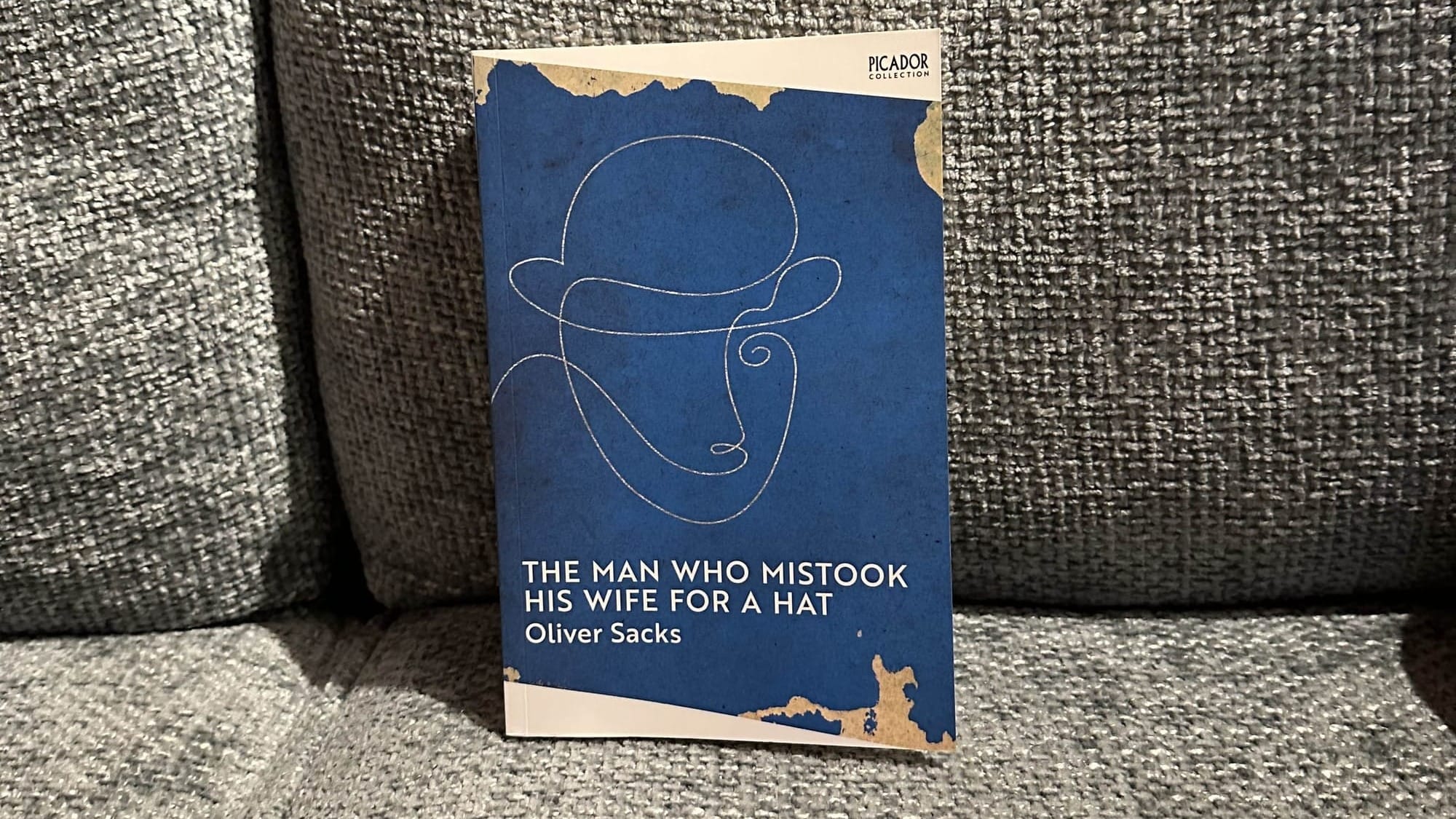
Every so often, a book takes you completely by surprise. For me, that book this year was Oliver Sacks’ The Man Who Mistook His Wife for a Hat. I picked it up primarily because of its intriguing title, but it ended up being my favorite read of the year.
The book is a collection of case studies detailing some of the most unusual and perplexing neurological disorders Sacks encountered during his career as a neurologist. Each story is both fascinating and deeply human, shedding light on the incredible diversity of ways in which the brain can process—and misinterpret—the world.
What struck me most was the balance between scientific insight and empathy in Sacks’ writing. He doesn’t just describe the disorders clinically; he delves into the lives of the patients, exploring how these conditions affect their identities, relationships, and ability to navigate everyday life. It reminded me of Neurotribes, another favorite of mine, which also emphasized the importance of understanding neurodiversity.
One particularly poignant theme in the book is the rigidity of medical practices and how they sometimes fail to accommodate unique or unconventional cases. Sacks highlights moments where creativity and open-mindedness could have significantly improved outcomes for patients who had otherwise been dismissed by standard protocols. This resonated with me as a reminder of the importance of tailoring solutions to individual needs, whether in healthcare, work, or life.
The stories in this book are not just intellectually stimulating but also deeply moving. They illustrate how remarkable—and vulnerable—the human mind is, and how people find ways to adapt to even the most challenging circumstances. It’s a celebration of human resilience, but also a call to approach differences with curiosity and compassion.
Without question, this one I’ll be recommending to anyone who’ll listen. It left me with a deeper appreciation for the complexity of the human experience and the value of truly seeing and understanding others.
Wrapping Up
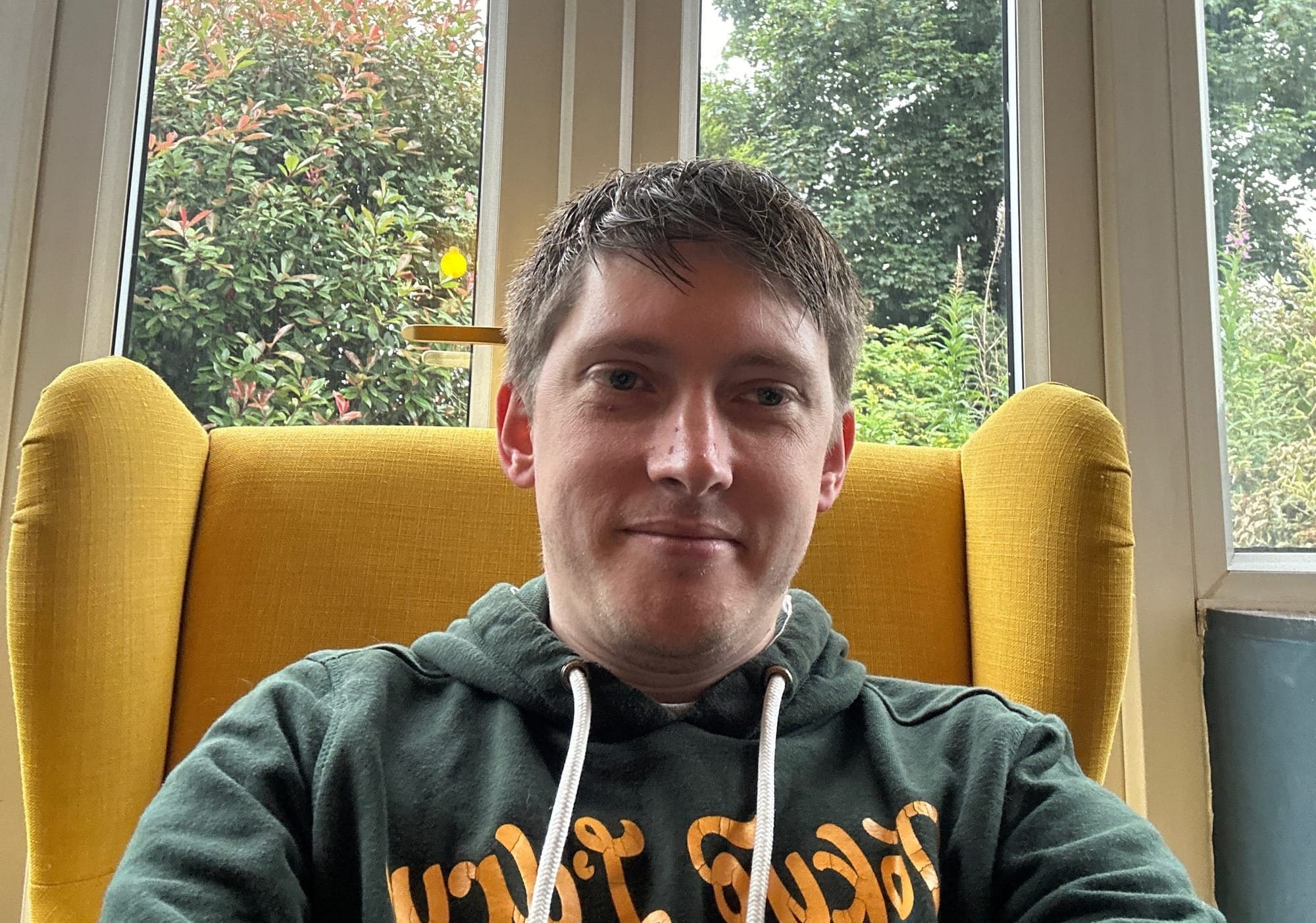
As I look back on my reading journey this year, I’m reminded once again of the power of books to broaden our horizons and deepen our understanding of the world. From learning how to navigate the complexities of technical leadership to exploring the whimsical world of Greek mythology, each book brought something unique to the table.
This year’s selection has been a mix of professional growth, personal introspection, and pure curiosity. Books like Staff Engineering and Oversubscribed provided actionable insights that I’ve already started applying in my work. Others, like Mythos and The Man Who Mistook His Wife for a Hat, offered windows into worlds far removed from my own, sparking new ideas and perspectives.
Reading has also been a shared experience in my household, with my daughters showing more interest in books simply by seeing me enjoy them. Encouraging their love of reading—by offering to buy them any book they want—has been one of the unexpected joys of the year. It’s a small reminder that the impact of reading extends beyond the individual.
Looking ahead, I’m excited to see where next year’s reading journey will take me. I already have a few books on my list, but I’m always open to recommendations. If you’ve read something this year that you think I’d enjoy, let me know—I’d love to hear about it.
Honorable Mention: Ghost in the Wires
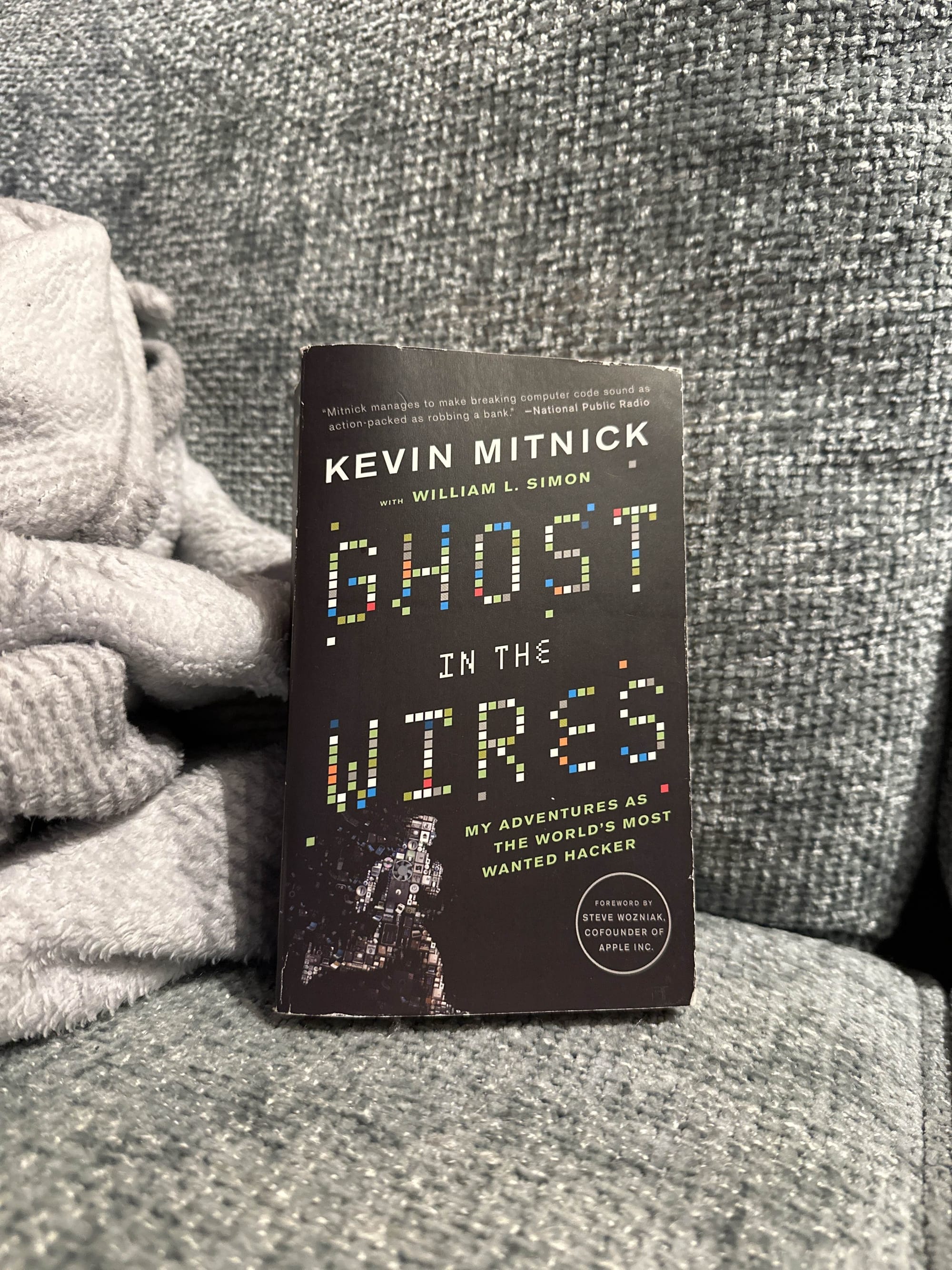
Although it didn’t quite make the main list, I’d be remiss if I didn’t mention Ghost in the Wires by Kevin Mitnick. Reading this book felt particularly poignant this year, following Mitnick’s passing in 2023. His story—a blend of technical brilliance, audacity, and an almost cinematic level of intrigue—has truly immortalized him in my memory.
The book offers a firsthand account of Mitnick’s life as one of the most infamous hackers in history, detailing the incredible lengths he went to in order to breach systems, evade capture, and stay one step ahead of law enforcement. What stood out to me the most was his ability to combine technical expertise with social engineering, creating a level of surveillance and manipulation that was both impressive and unsettling.
Reading about the techniques he employed made me reflect on how much has changed in the way we communicate—and what might still be possible. It also raised questions about how law enforcement (or perhaps less scrupulous individuals) could adapt these methods in the modern era. While some of the strategies Mitnick described may now be outdated, the principles behind them remain relevant, serving as both a warning and a lesson.
Ghost in the Wires was a thrilling, thought-provoking read and a fitting tribute to a man whose impact on the cybersecurity world will not be forgotten. It’s a book I’d recommend to anyone curious about the history of hacking or the human ingenuity that can both create and exploit vulnerabilities in the systems we rely on.
